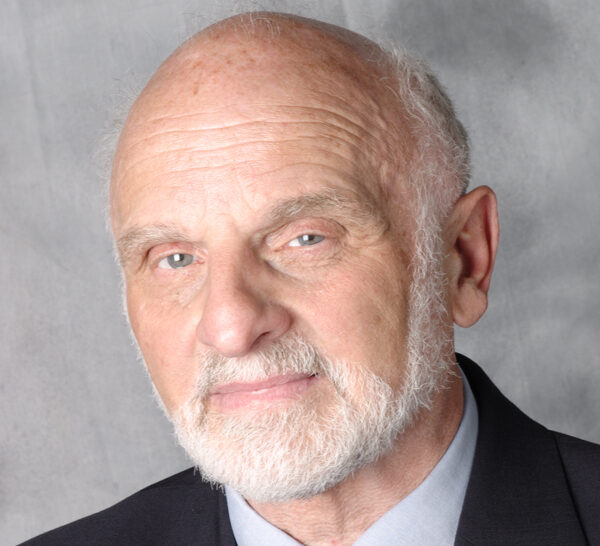After the memory of Moses, the daring of David and the opulence of Solomon, ancient Israel came to believe that it was God’s chosen people who had a monopoly on God’s love and God’s goodness.
In the eighth century B.C.E., the prophet Amos took as his work helping his contemporaries in Israel to see that Israel, in its chosenness, had no monopoly on God’s goodness. Its chosenness was no pass from obedience to God’s rule and no guarantee of God’s love.
Thus, in his Oracles Against the Nations, Amos shows, one by one, that Israel’s neighbors and adversaries were subject to God’s rule and God judgment (Am. 1-2). Surprisingly, he also includes Judah (2:4-5) and Israel (2:6-11) among those called to harsh account by God.
And then, in one of his most remarkable utterances, Amos says this:
Are you not like the Ethiopians to me,
(Am. 9:7)
O people of Israel? says the lord.
Did I not bring Israel from the land of Egypt,
and the Philistines from Caphtor and the Arameans from Kir?
Israel remembered its emancipation from slavery under Pharaoh, in Egypt, and imagined that God’s Exodus deliverance of Israel was a singular act, without parallel in the history of the world. After all, God had identified Israel as “my first-born son” (Ex. 4:22). But Amos, to the contrary, insisted otherwise. He asks of Israel two rhetorical questions.
Yes, YHWH did bring up the Philistines from Caphtor.
Yes, YHWH did bring up the Arameans (Syrians) from Kir.
Amos names two foreign peoples that were at different times Israel’s most threatening enemies, the Philistines and later the Syrians. He dares to say that God enacts “Exoduses” for Israel’s enemies. He affirms that God’s emancipatory power extends to other peoples who are not commonly taken to be “chosen.”
He debunks Israel’s claim to the exclusionary love and justice of God and insists that, in its universal scope, YHWH’s emancipatory reach extends everywhere, at many times and in many places, bringing emancipation for those not yet liberated. Indeed, he suggests that the wide sweep of history under YHWH is a sequence of Exoduses, so that there is nothing exclusionary about Israel’s emancipatory memory or claim.
The passion of God’s emancipatory embrace goes well beyond straight people.
Thus, we may consider an inventory of the chosen and the unchosen whom God emancipates. The “chosen” and “unchosen” emancipated by God might be any of the following:
a). Israel has no doubt it was “the chosen people” and now Amos says, to the contrary, even Israel’s enemies are subject to YHWH’s emancipatory intention.
b). White people, in our modern world, often take themselves to be God’s chosen people. Thus, white European culture is the seen as the most “advanced” with its colonial exploitation and its mastery in arts, science and wealth.
And now Amos, to the contrary, dares to say that “people of color” (represented by the Ethiopians) are also subject to God’s emancipatory love. God’s love is not exclusively for white people, even though Europeans who came to America took their whiteness as a privileged status, and had few qualms about imitating Pharaoh in enslaving people of color.
c). For much too long, it has been easy to say that males believe they too are God’s chosen people. They are the ones with power who have been able to shape history and accumulate wealth. They are the ones for whom the verbs, “exploit conquer, occupy, possess” most readily apply. And then the prophetic tradition, extended and enacted through the testimony and ministry of Jesus, showed that God’s emancipatory love reached effectively toward females.
Thus, Mary Magdalene was among the earliest disciples of Jesus. And the Apostle Paul can declare that in Christ there is neither “male nor female” (Gal. 3:28). The gender revolution continues as women are increasingly welcomed into the public life of the world, and even, belatedly, into the ministry of the church.
d). Anyone can see that straight persons also believe that they are the chosen of God, who have been able to define social power and social acceptability. Anyone who “deviated” from the straight world has been excluded forever from social acceptance, has been deemed a danger and a threat to social wellbeing, and thus subject to harsh treatment.
And now, belatedly, we are able to see that the reach of God’s emancipatory love extends beyond straight people, who are readily approved by society, to include LGBTQ persons, who have been much too long held in the bondage of social censorship and social disapproval. The passion of God’s emancipatory embrace goes well beyond straight people.
Our several orthodoxies of nationalism, racism, sexism and gender exclusion all have imagined a God who could be safely kept in our preferred boundaries.
God will not be contained.
We can see, historically, that these several emancipatory concerns have come to fruition very slowly and to some extent in sequence:
First, Gentiles beyond chosen Israel;
Then, people of color beyond whites;
Later, females beyond males and
Very belatedly, LGBTQ persons beyond straight hegemony.
But it has happened and continues to happen in all of these traditions! God’s truth is marching on! We are discerning that God’s love, justice, freedom, mercy and faithfulness cannot be contained in our self-imagined categories of chosenness and privilege. Our several orthodoxies of nationalism, racism, sexism and gender exclusion all have imagined a God who could be safely kept in our preferred boundaries.
But the God of the covenant, who is the God the Gospel, will not be so contained. Indeed, it is evident that God’s peculiar attentiveness is especially drawn toward those who are regularly denied legitimacy in our social arrangements. We can knowingly speak of “God’s preferential option” not only for the poor, but toward all those who are otherwise discounted.
It seems clear enough that all such efforts to “box in” the God of freedom are grounded in fear. We imagine that the other—the ones unlike us—are a threat, and so we fashion exclusionary practices and rules. It turns out, however, that such fear is not the last word. God intends us, all those who see themselves as chosen—whites, males, straight—to see that faith, hope and love are stronger than fear and will prevail.
The reach of emancipation toward LGBTQ persons is the latest such move toward liberation.
And so, the other need not be a threat, but can be welcomed as a neighbor.
Because the reach of emancipation toward LGBTQ persons is the latest such move toward liberation, we may pay special attention to the way in which it sounds through the lines of Amos:
Are you not like the LBGTQ persons to me, O straights? Yes!
Did I not bring up straight people to be emancipated agents in the world? Yes!
And did I not bring up LGBTQ persons to first class citizenship in the world? Yes!
And did I not bring up LGBTQ persons to be free for a life of joy and freedom and wellbeing in the world? Yes!
Like the earlier questions posed by Amos, these world-shattering questions of Amos require a vigorous “yes” in response. It is a “yes” of Gospel emancipation. It is a “yes” of limitless love. It is a “yes” of wellbeing that counters all of our fearful exclusions.
Amos could not have been popular among the “chosen” for such utterance. That, however, is not much against his bold truth-telling. The Good News summons us to a vigorous, unafraid “yes” toward all those whom the Pharaohs of the world continue to keep in bondage. As the Apostle Paul concludes:
For freedom Christ has set us free. Stand firm, therefore, and do not submit again to a yoke of slavery.




0 Comments